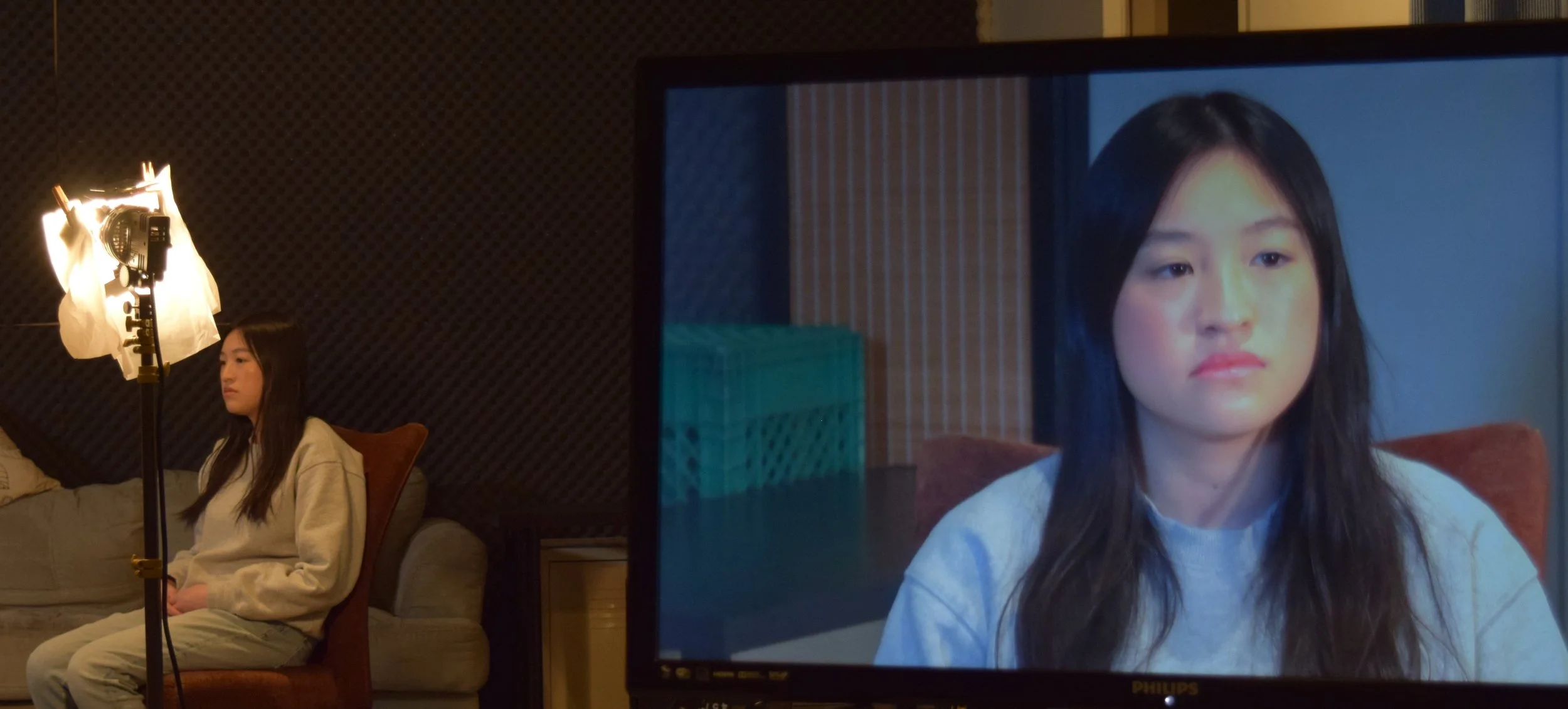Block your Audition.
/One way to give you confidence in an audition is to block it when you prep.
That includes how you’re sitting or standing. Can you play the scene from how you’re standing? Are you comfortable? Usually, the way you normally stand is the best way to stand.
That’s your physical support: how you’re sitting or standing. Try and get that right – that’s your base. Where you fight from.
It looks good on the monitor if your chair is on a bit of an angle to the frame, if you stand on a bit of an angle. It opens up the possibility of thinking away from the lens and then coming back to it once you’ve got the thought.
If you have activity in the scene, if your attention is 70% on your work and 30% on the other character you should pick a place to look other than the reader. Set that so you like it. Close to the other side of the lens or just under it are both good places for them to see your eyes.
If your attention is elsewhere choose when you’d look at the reader – when you would include them or when they caught your attention.
Where you look is part of film language.
But, only do this if you like it.
You don’t need to look in different places for different characters in the scene. Look where you want to and set it.
Not blinking gives you more power. Typical roles in procedurals such as cops, doctors, lawyers usually don’t blink. That’s a guideline not a law.
As does keeping your head straight. For status. Stillness gives you status, but no need to be locked in, frozen.
If your character is in a scene that’s rough, emotional and wild then blink away, move all over the place.
No audition rule says you can’t move around.
If you’re entering the scene and you want that bit of motion to start, then take a step back from the mark and step in on action. It gives you energy. A step or two either side of the mark or behind is perfectly fine.
Stepping in front of the mark isn’t good as it really crowds the frame and the operator can’t dolly back.
Use a prop or not. It doesn’t matter. This isn’t school. But, practice with it so you’re comfortable with it and set where and how you’re using it. Usually, in my experience, props can be diverting.
A positive result of blocking your audition is that it calms you down.
You know the physical score of the scene. If you’re nervous entering the room, but start by doing what you blocked at home that will help put you in.
Blocking an audition does not mean every moment is set in stone. No. It means you have a solid framework – a base - from which to play.
Support that can free you.
Scenes with pure emotion and spontaneity don’t need blocking – just truthful playing. The others get helped with blocking.








